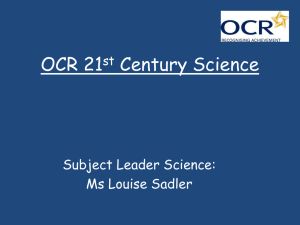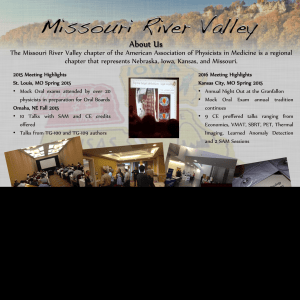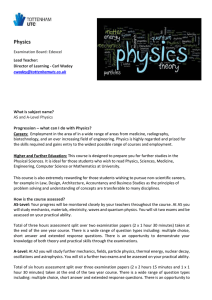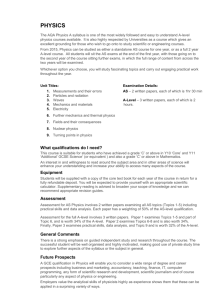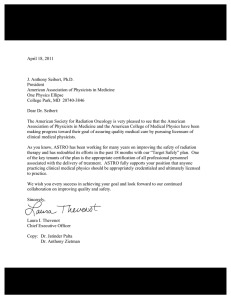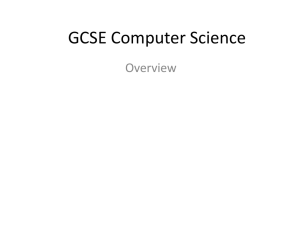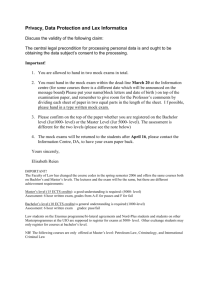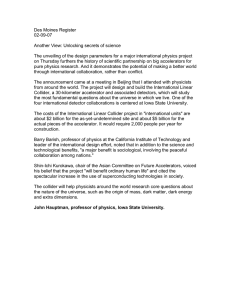Physics
advertisement
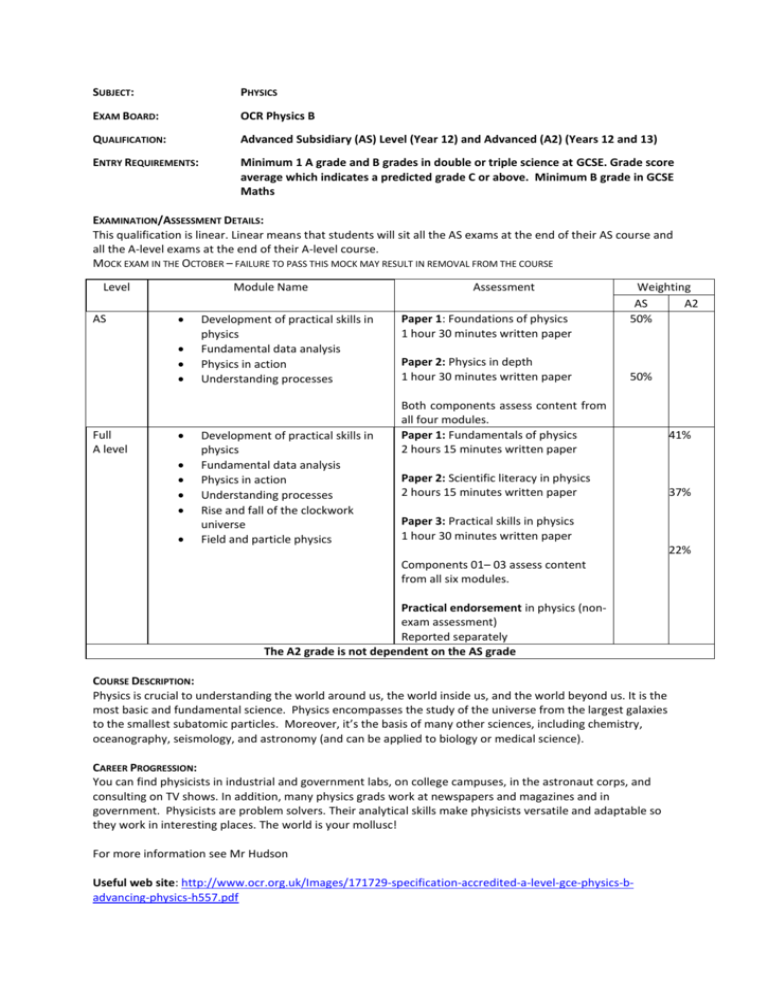
SUBJECT: PHYSICS EXAM BOARD: OCR Physics B QUALIFICATION: Advanced Subsidiary (AS) Level (Year 12) and Advanced (A2) (Years 12 and 13) ENTRY REQUIREMENTS: Minimum 1 A grade and B grades in double or triple science at GCSE. Grade score average which indicates a predicted grade C or above. Minimum B grade in GCSE Maths EXAMINATION/ASSESSMENT DETAILS: This qualification is linear. Linear means that students will sit all the AS exams at the end of their AS course and all the A-level exams at the end of their A-level course. MOCK EXAM IN THE OCTOBER – FAILURE TO PASS THIS MOCK MAY RESULT IN REMOVAL FROM THE COURSE Level AS Module Name Full A level Development of practical skills in physics Fundamental data analysis Physics in action Understanding processes Development of practical skills in physics Fundamental data analysis Physics in action Understanding processes Rise and fall of the clockwork universe Field and particle physics Assessment Paper 1: Foundations of physics 1 hour 30 minutes written paper Paper 2: Physics in depth 1 hour 30 minutes written paper Weighting AS A2 50% 50% Both components assess content from all four modules. Paper 1: Fundamentals of physics 2 hours 15 minutes written paper Paper 2: Scientific literacy in physics 2 hours 15 minutes written paper 41% 37% Paper 3: Practical skills in physics 1 hour 30 minutes written paper 22% Components 01– 03 assess content from all six modules. Practical endorsement in physics (nonexam assessment) Reported separately The A2 grade is not dependent on the AS grade COURSE DESCRIPTION: Physics is crucial to understanding the world around us, the world inside us, and the world beyond us. It is the most basic and fundamental science. Physics encompasses the study of the universe from the largest galaxies to the smallest subatomic particles. Moreover, it’s the basis of many other sciences, including chemistry, oceanography, seismology, and astronomy (and can be applied to biology or medical science). CAREER PROGRESSION: You can find physicists in industrial and government labs, on college campuses, in the astronaut corps, and consulting on TV shows. In addition, many physics grads work at newspapers and magazines and in government. Physicists are problem solvers. Their analytical skills make physicists versatile and adaptable so they work in interesting places. The world is your mollusc! For more information see Mr Hudson Useful web site: http://www.ocr.org.uk/Images/171729-specification-accredited-a-level-gce-physics-badvancing-physics-h557.pdf
